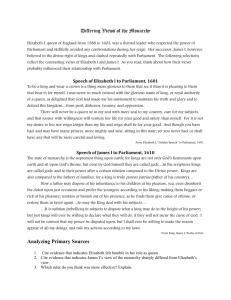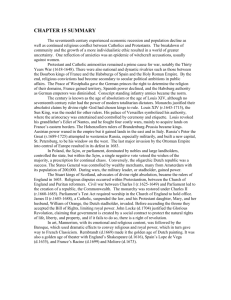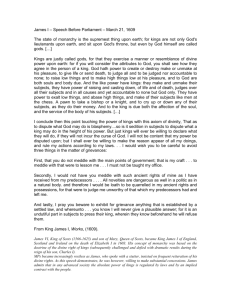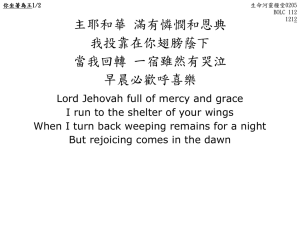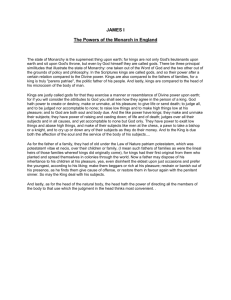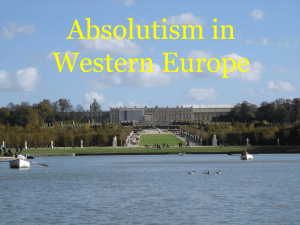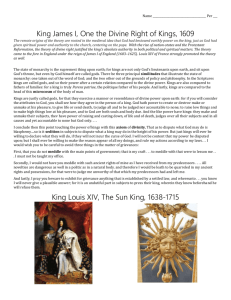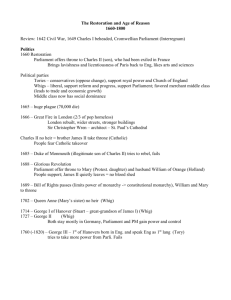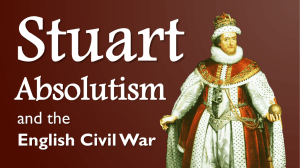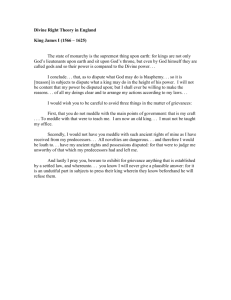JAMES I (1603-1625): REMARKS ON THE DIVINE RIGHT OF KINGS
advertisement
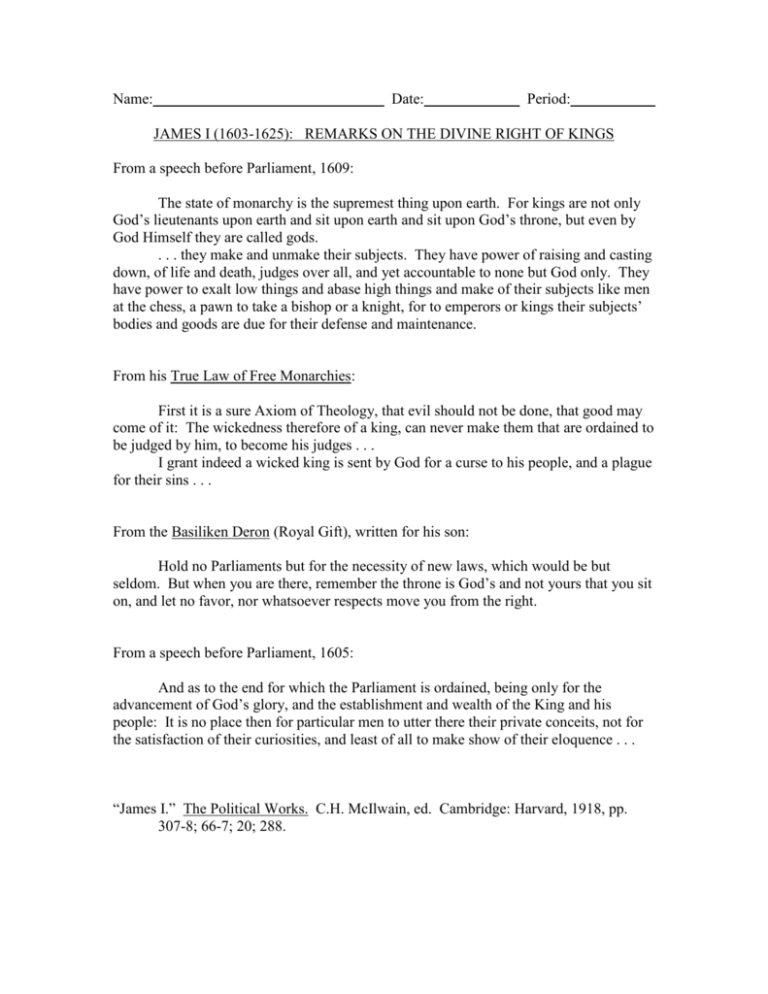
Name: Date: Period: JAMES I (1603-1625): REMARKS ON THE DIVINE RIGHT OF KINGS From a speech before Parliament, 1609: The state of monarchy is the supremest thing upon earth. For kings are not only God’s lieutenants upon earth and sit upon earth and sit upon God’s throne, but even by God Himself they are called gods. . . . they make and unmake their subjects. They have power of raising and casting down, of life and death, judges over all, and yet accountable to none but God only. They have power to exalt low things and abase high things and make of their subjects like men at the chess, a pawn to take a bishop or a knight, for to emperors or kings their subjects’ bodies and goods are due for their defense and maintenance. From his True Law of Free Monarchies: First it is a sure Axiom of Theology, that evil should not be done, that good may come of it: The wickedness therefore of a king, can never make them that are ordained to be judged by him, to become his judges . . . I grant indeed a wicked king is sent by God for a curse to his people, and a plague for their sins . . . From the Basiliken Deron (Royal Gift), written for his son: Hold no Parliaments but for the necessity of new laws, which would be but seldom. But when you are there, remember the throne is God’s and not yours that you sit on, and let no favor, nor whatsoever respects move you from the right. From a speech before Parliament, 1605: And as to the end for which the Parliament is ordained, being only for the advancement of God’s glory, and the establishment and wealth of the King and his people: It is no place then for particular men to utter there their private conceits, not for the satisfaction of their curiosities, and least of all to make show of their eloquence . . . “James I.” The Political Works. C.H. McIlwain, ed. Cambridge: Harvard, 1918, pp. 307-8; 66-7; 20; 288.

